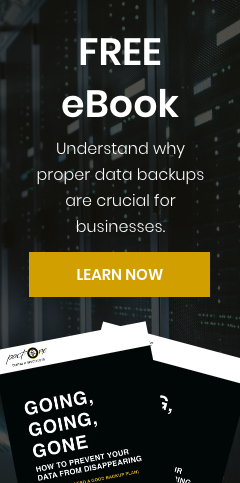With the average cost of a data breach currently sitting at $3.86 million and brute force attacks soaring by 400% during the COVID-19 pandemic, ensuring a secure network is a must for your dental practice. Lost, tampered, or leaked patient data can significantly damage your practice’s reputation and patient trust. However, with the right tools and training, you can prevent common security issues before they arise. Below, we’ve compiled the most important aspects of a secure dental practice network.
Firewalls
Firewalls are a highly common network security tool that assesses incoming and outgoing network traffic for suspicious data activity. These provide an effective barrier against malicious attempts to intrude on your network. Depending on the size and scope of your company, investing in next-generation firewall solutions is recommended. These provide the added functionality of intrusion prevention systems to inspect network packets for unusual behavior that may indicate a threat, like large file transfer attempts.
Network monitoring
A network monitoring system provides users with the hardware and software tools to thoroughly examine a practice’s network and its related activity. These include operations that take place within the network, the amount of bandwidth used, traffic information, and uptime. Such tools can also help users (typically network administrators) detect device connection failures or traffic bottlenecks that impact data flow.
VPNs
Virtual private networks (VPNs) encrypt one’s connection to the internet, cloaking your data activity from potential hackers or interceptors. This tool is critical to maintaining a secure network, particularly among staff who may need to access sensitive files outside of the practice’s network premises. Some VPN services may even have the added feature of disconnecting devices when a secured connection is lost, preventing accidental, unsecured entry points to confidential information.
Access controls
Access controls help you authorize user access to specific areas of your network. They help you decide who gets access to what information based on their specific roles, devices, and even location. This ensures that dental practice staff only have access to files and resources necessary to do their job. For instance, someone from accounting shouldn’t have unfettered access to a patient’s records, as this can result in a breach of doctor-patient confidentiality.
Anti-malware software
Anti-malware software functions as everyday monitors of user and network data, helping block spam, suspicious websites, and potential harmful files or downloads. Using their built-in threat intelligence database of the latest malware signatures, they can thoroughly scan your devices for any trace of malicious programs running in the background.
Routine software updates
Having the latest, state-of-the-art security software is only as effective as their measures are relevant. With cybercrimes growing more sophisticated and 560,000 instances of new malware created each day, regular updates of your security programs are necessary. These allow your software to patch up vulnerabilities in their current measures, update their malware database, and even implement new or enhanced features to improve overall security.
Data backup
If incidents like device theft, software failure, or a network data breach occur, data backups can instantly recover your data and minimize the resulting downtime. Common methods of data backup include backing up to the cloud or to a separate medium, such as a separate disk storage system. To successfully maintain an up-to-date, archived copy of critical data, backups must be done on a regular basis, with rigorous security measures also applied to your backup servers.
Security training
Finally, your staff must be equipped with the skills and knowledge of cybersecurity best practices. While having the right tools and security solutions is crucial, your employees must also be informed in methods of identifying, reporting, and navigating potential data breaches. This includes awareness of common social engineering or phishing tactics, potentially harmful websites or files, and proper password hygiene.
Looking to strengthen your network security? Our experts at Pact-One Solutions have all the tools and services necessary to ensure thorough protection of your dental practice’s data. Leading in dental IT support across the Western states since 2003, we’ll not only provide multilayered network security, but a stringent backup and disaster recovery plan to boot. Keep both your company and client information safe by getting in touch with us today.
Dental IT. Remove the Burden. Embrace the Use.
Quality patient care – it's ultimately why you became a dental professional. But, some business operations can get in the way (such as pesky computer issues or lack of IT support). That’s where Pact-One Solutions can help! Our passion lies in supplying reliable, responsive dental IT support and security that practices can count on.
Whether you’re looking for dental IT services for your startup or searching for more responsive dental IT support – our team of dental IT specialists have you covered. With team members throughout the United States, we offer nationwide support to dental practices of all sizes. Our wide range of dental IT services ensure your data is secure, accessible, and protected.
Don't let technology challenges hinder your ability to deliver exceptional dental care. Contact us at info@pact-one.com or 866-722-8663 to join 350+ dental practices thriving with the support of a dedicated dental IT team.


